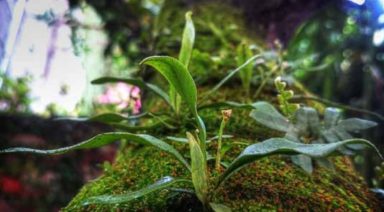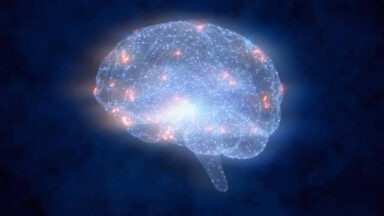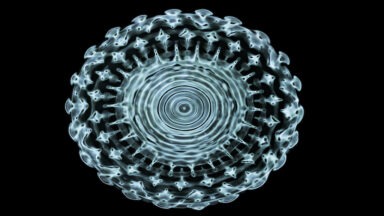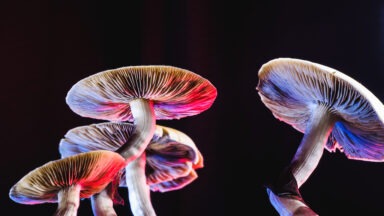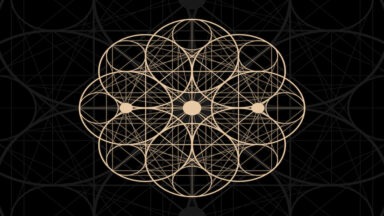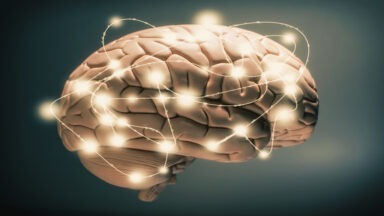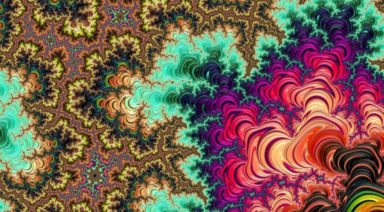Research Confirms Intention Affects Structure of Water Pt. 2

An exciting new study by a leading research institute suggests that mental intention can not only change the structure of water but may even help stem cells to grow. The study provides fascinating results with profound implications.
The Institute of Noetic Sciences (IONS) is a leader in the field of exploring mind-matter interactions. Its latest study is the culmination of a number of other experiments, all suggesting that the act of making an intention on water produces a measurable response.
Dr. Dean Radin is the chief scientist at IONS who led the study.
“In this experiment, as in previous studies, we asked three Buddhist monks in a temple in Taiwan, to focus their attention towards samples of water, with the intention that stem cells grown with that water as part of the growth medium would proliferate more,” Radin said. “And then we had control water — same company, same source — that was not part of the experiment which we set aside as a control. So then the water was used in a double-blind fashion by a technician who was growing the stem cells, to create growth media that these stem cells were put into. Then they simply measured, over three days, how much were the stem cells growing, and they also took other measures that are genetic expression factors showing the health of the stem cells.”
Researchers were astounded by the results.
“What we found was significant evidence that the stem cells proliferated more, (and) that the genes that were expressed were in alignment with the idea that they were actually healthier stem cells.”
Just what makes these results so significant?
“Stem cells are part of the human body that are called pluripotent, which means that they can turn into any other kind of cell. So, it’s being used, mostly experimentally at this point, for repair of the human body. Anything which makes adult stem cells proliferate more and last longer is really good because it’s not so easy to make adult stem cells live longer and be healthier,” Radin said.
“So what this is suggesting is that simply the act of intention on water must have done something to the water to make the stem cells actually grow better. One of the implications is that wherever stem cells are being used, you want to train the people who are growing the stem cells to maintain a certain intention that these cells are going to grow better, and then see what happens. But if it worked, well that would change everything, because now it means that anybody doing any kind of mental preparation — not just stem cells, but anything — if they come at it with an intention that this is going to work better, well, it looks like it will work better.”
IONS is currently planning follow-up experiments to replicate the results and explore further. For Radin, the implications of this research are far-reaching.
“The reason why consciousness is particularly interesting and why intention is interesting is because a lot of people are spending a lot of time doing things like praying for peace, or praying for somebody else to be well, or praying for this, or praying for that. It’s all about intention that you want something to change in the world. Well, in order for that to work, it requires, from a non-religious perspective, that consciousness, and intention in particular, does something. It is causal, in which case things like praying for peace would make sense because then it’s not just people comforting themselves, but they’re actually changing something in the physical world,” Radin said.
Times of Social Unrest Appear to Boost Our Brain's Neuroplasticity

New research suggests that times of global unrest present a unique opportunity for neurological growth and profound behavior change, but only when leveraged correctly.
Kayla Osterhoff is a neuropsychophysiologist who studies the interaction of the mind and brain, which she calls the ‘human operating system.’
“One of the greatest mysteries in modern neuroscience is actually how the brain produces the mind. The reason why we have not been able to come up with the answer for this is because that’s not how it works. These two are actually separate systems that interact together to produce what I call the ‘human operating system,’ which is responsible for our version of reality as humans,” Osterhoff said.
Osterhoff has recently been researching the hypothesis that times of social unrest provide a valuable opportunity to neurologically upgrade this human operating system.
“Right now, we have this very unique opportunity to upgrade our ‘human operating system’ globally,” Osterhoff said. “And that is because as a society around the entire world we are experiencing this social unrest and this has caused a couple of significant cognitive and neurological shifts that have provided an opportunity for us to grow and evolve as a society.”
Osterhoff points to several fascinating factors that contribute to this phenomenon.
“So, studies are showing that acute states of stress, like shock, trauma, or something surprising like what we’re currently experiencing in our world, caused this cognitive psychological shift that actually makes our subconscious mind more suggestible, meaning that our subconscious mind is brought forward so to speak, and it’s more malleable, it’s more programmable,” Osterhoff said.





